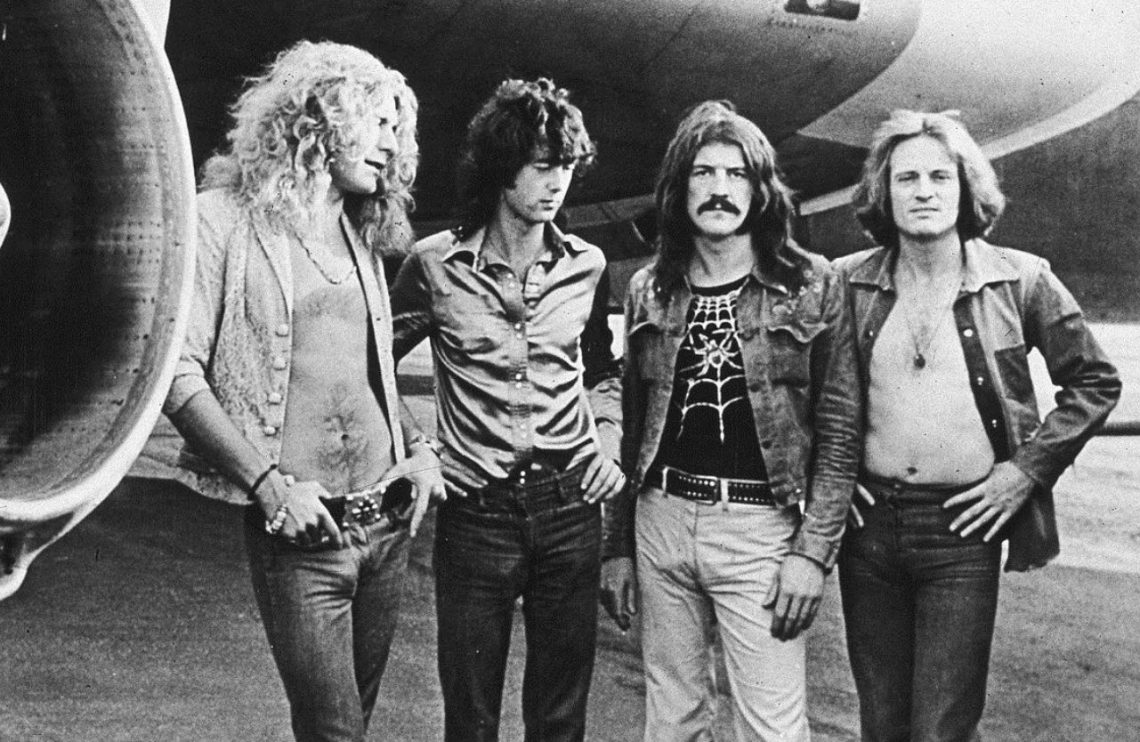Alright folks, gather 'round because we're diving headfirst into a topic that's got the heart of music history pounding loud and clear. Rock bands from the seventies? Yeah, they weren’t just bands—they were legends, icons, and the soundtrack to a decade that changed the world. If you're here, chances are you already know the seventies were a wild ride for rock music, but let's make sure we're all on the same page. This era wasn’t just about bell-bottoms and disco balls; it was about rebellion, raw emotion, and some of the most legendary rock anthems ever created. So, buckle up, because we're about to take a trip back to the golden age of rock.
Now, if you're thinking "rock bands from the seventies" and imagining just a handful of groups, you're in for a surprise. This decade was packed with talent, and it wasn’t just about one or two big names. We’re talking about a scene so vibrant and diverse that it gave birth to subgenres like glam rock, hard rock, progressive rock, and more. And yeah, the seventies were the breeding ground for some of the most influential bands in rock history. These weren’t just musicians—they were cultural movements, shaping the way we think about music today.
So why does this matter now? Because the legacy of rock bands from the seventies is still alive and kicking. Their influence can be heard in modern rock, alternative, and even pop music. If you’ve ever tapped your foot to a guitar riff or felt your soul stir with a powerful lyric, chances are you’ve got the seventies to thank for it. Let’s dig deep into the stories, the sounds, and the sheer brilliance of this era. Ready? Let's rock!
Read also:Are Frannie And Matt Still Together From Survivor The Inside Scoop Yoursquove Been Waiting For
Table of Contents
- Biography of the Seventies Rock Era
- Defining Moments in Rock Bands from the Seventies
- Iconic Rock Bands from the Seventies
- Exploring Subgenres of Seventies Rock
- Key Figures Behind the Rock Revolution
- Cultural Impact of Rock Bands from the Seventies
- The Evolution of Music in the Seventies
- Influence of Seventies Rock on Modern Music
- Memorable Songs from Seventies Rock Bands
- Conclusion: Why Seventies Rock Still Matters
Biography of the Seventies Rock Era
Let’s rewind the clock and set the stage. The seventies were a time of change, and rock music was at the heart of it all. It wasn’t just about making hits; it was about making statements. Rock bands from the seventies weren’t just about the music—they were about the message. This era saw the rise of some of the most iconic bands in rock history, and their influence is still felt today. So, what made the seventies so special? Let's break it down.
First off, the seventies were a melting pot of genres. Bands weren’t confined to one style; they experimented with sounds, blending rock with funk, jazz, and even classical influences. This era was all about pushing boundaries and breaking rules. And let’s not forget the fashion—platform shoes, flashy outfits, and outrageous hairstyles. Rock bands from the seventies weren’t just about the music; they were about the whole package.
Key Features of Seventies Rock
Here’s a quick rundown of what made seventies rock so unique:
- Experimentation with new sounds and instruments
- Strong emphasis on live performances
- Focus on storytelling through lyrics
- Creation of subgenres like glam rock, prog rock, and hard rock
Defining Moments in Rock Bands from the Seventies
Every era has its defining moments, and the seventies were no exception. This was a decade of firsts—firsts in music, culture, and even technology. Rock bands from the seventies were at the forefront of these changes, shaping the world with their music. One of the biggest moments? The rise of stadium rock. Bands like Led Zeppelin and Pink Floyd were filling arenas, proving that rock music wasn’t just for small clubs anymore.
Another defining moment? The emergence of punk rock. While some might see it as a rebellion against the mainstream, it was also a return to the raw, unfiltered sound that rock was all about. Bands like The Clash and The Ramones were shaking things up, proving that rock wasn’t just about big budgets and flashy visuals—it was about passion and authenticity.
Landmark Concerts and Events
Concerts in the seventies were legendary. Here are a few that stand out:
Read also:Jason Beghe Height Unveiling The True Measure Of A Talented Actor
- Woodstock 1970: A festival that defined a generation
- Live Aid 1975: A precursor to global charity events
- Queen's Wembley Performance: A masterclass in live rock
Iconic Rock Bands from the Seventies
Alright, let’s get to the good stuff—the bands themselves. The seventies were home to some of the most iconic rock bands in history. These weren’t just groups; they were cultural phenomena. Let’s take a look at a few that stand out:
Led Zeppelin: Need we say more? These guys were the kings of rock. From "Stairway to Heaven" to "Whole Lotta Love," their music defined an era.
Pink Floyd: Known for their progressive sound and concept albums, Pink Floyd was all about pushing the boundaries of rock music.
The Rolling Stones: Still rocking strong, the Stones were all about attitude and raw energy.
Table: Key Data on Iconic Bands
| Band Name | Origin | Genre | Notable Albums |
|---|---|---|---|
| Led Zeppelin | United Kingdom | Hard Rock, Blues Rock | "Led Zeppelin IV," "Houses of the Holy" |
| Pink Floyd | United Kingdom | Progressive Rock | "The Dark Side of the Moon," "Wish You Were Here" |
| The Rolling Stones | United Kingdom | Blues Rock, Rock and Roll | "Exile on Main St.," "Sticky Fingers" |
Exploring Subgenres of Seventies Rock
Rock music in the seventies wasn’t just one thing—it was everything. This era saw the rise of subgenres that would go on to influence countless musicians. Let’s dive into a few:
Glam Rock
Think glitter, sequins, and larger-than-life personalities. Bands like David Bowie and T. Rex were all about the visual spectacle, proving that rock wasn’t just about the music—it was about the show.
Progressive Rock
This was all about complexity and experimentation. Bands like Yes and Genesis were pushing the limits of what rock music could be, creating epic soundscapes that were both intricate and mesmerizing.
Hard Rock
No frills, no gimmicks—just raw power. Bands like AC/DC and Deep Purple were all about delivering a punch with every note.
Key Figures Behind the Rock Revolution
Every great movement needs its leaders, and the seventies rock scene had plenty. These were the visionaries, the innovators, and the rule-breakers who changed the game. Let’s meet a few:
Jimmy Page: The guitarist behind Led Zeppelin, Page was a master of his craft, known for his innovative techniques and iconic riffs.
Freddie Mercury: The frontman of Queen, Mercury was a showman like no other, captivating audiences with his voice and charisma.
David Bowie: A true chameleon, Bowie was all about reinvention, constantly pushing the boundaries of what it meant to be a rock star.
Impact of Key Figures
These figures didn’t just influence the music—they influenced the culture. Their impact can still be seen today in everything from fashion to film. They proved that rock wasn’t just a genre; it was a lifestyle.
Cultural Impact of Rock Bands from the Seventies
Rock bands from the seventies didn’t just shape music—they shaped culture. This was a time when music was more than entertainment; it was a form of protest, a way to express dissent, and a tool for change. Bands like The Eagles and Fleetwood Mac were tackling social issues through their lyrics, while others like The Who and The Doors were exploring themes of identity and freedom.
And let’s not forget the impact on fashion. The seventies were all about individuality, and rock bands were leading the charge. From platform shoes to bell-bottoms, the fashion of the era was as bold and daring as the music itself.
Rock Music as a Cultural Force
The cultural impact of rock bands from the seventies can’t be overstated. They were part of a larger movement that was reshaping society, and their influence can still be felt today. Whether it’s through the music itself or the cultural artifacts it left behind, the seventies were a defining moment in rock history.
The Evolution of Music in the Seventies
Music in the seventies wasn’t static—it was evolving at lightning speed. This was a decade of innovation, with new technologies and techniques changing the way music was made and consumed. The rise of the electric guitar, the development of studio technology, and the emergence of new genres all played a part in shaping the sound of the era.
And let’s not forget the role of radio. In the seventies, radio was king, and it played a crucial role in shaping the music landscape. DJs were tastemakers, introducing audiences to new sounds and artists. This was a time when music discovery was happening on the airwaves, and it was thrilling.
Technological Advancements
The seventies saw some major advancements in music technology:
- Development of the synthesizer
- Improvements in recording techniques
- Rise of the cassette tape
Influence of Seventies Rock on Modern Music
The legacy of rock bands from the seventies is still alive and well. Their influence can be heard in everything from modern rock to pop music. Artists today are still drawing inspiration from the sounds and styles of the seventies, proving that this era was truly timeless.
And it’s not just the music—it’s the attitude. The seventies were all about authenticity, and that’s something that resonates with audiences today. Whether it’s through lyrics, fashion, or live performances, the spirit of the seventies lives on in the music of today.
Modern Artists Influenced by Seventies Rock
Here are a few modern artists who owe a debt to the seventies:
- Muse: Known for their epic soundscapes and theatrical performances
- Foo Fighters: A modern rock band with a classic rock sensibility
- Arctic Monkeys: Channeling the raw energy of seventies rock
Memorable Songs from Seventies Rock Bands
Every great band has its standout tracks, and the seventies were full of them. Here are a few that still resonate today:
"Stairway to Heaven" by Led Zeppelin: A classic for a reason, this song is a masterclass in storytelling and musicianship.
"Bohemian Rhapsody" by Queen: A six-minute epic that defies genre and convention.
"Hotel California" by The Eagles: A haunting tale of excess and entrapment.
Why These Songs Endure
These songs aren’t just hits—they’re cultural touchstones. They’ve stood the test of time because they speak to universal
:max_bytes(150000):strip_icc()/music-file-photos---the-1970s---by-chris-walter-76183390-5bc75117c9e77c0051be45f5.jpg)

